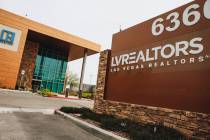Seven crucial facts about FHA loans

What is an FHA loan?
FHA loans are popular with mortgage borrowers because of lower down payment requirements and less stringent lending standards.
Simply stated, an FHA loan is a mortgage insured by the Federal Housing Administration, a government agency within the U.S. Department of Housing and Urban Development. Borrowers with FHA loans pay for mortgage insurance, which protects the lender from a loss if the borrower defaults on the loan.
Why people get FHA loans: Because of that insurance, lenders can — and do — offer FHA loans at attractive interest rates and with less stringent and more flexible qualification requirements.
Following are seven facts that borrowers should know about FHA loans.
1. Less-than-perfect credit is OK
Minimum credit scores for FHA loans depend on the type of loan the borrower needs. To get a mortgage with a down payment as low as 3.5 percent, the borrower needs a credit score of 580 or higher.
Those with credit scores between 500 and 579 must make down payments of at least 10 percent.
People with credit scores under 500 generally are ineligible for FHA loans. The FHA will make allowances under certain circumstances for applicants who have what it calls “nontraditional credit history or insufficient credit” if they meet requirements. Ask your FHA lender or an FHA loan specialist if you qualify.
2. Minimum down payment is 3.5 percent
For most borrowers, the FHA requires a down payment of just 3.5 percent of the purchase price of the home. That’s a “huge attraction,” says Dennis Geist, senior director of compliance and fair lending at Treliant Risk Advisors and formerly a vice president of government programs for another lender. In late 2014, Fannie Mae and Freddie Mac reduced minimum down payments to 3 percent from 10 percent, but such loans have limited availability.
FHA borrowers can use their own savings to make the down payment. But other allowed sources of cash include a gift from a family member or a grant from a state or local government down-payment assistance program.
3. Closing costs may be covered
The FHA allows home sellers, builders and lenders to pay some of the borrower’s closing costs, such as an appraisal, credit report or title expenses. For example, a builder might offer to pay closing costs as an inducement for the borrower to buy a new home.
Lenders typically charge a higher interest rate on the loan if they agree to pay closing costs. Borrowers can compare loan estimates from competing lenders to figure out which option makes the most sense.
4. Lender must be FHA-approved
Because the FHA is not a lender, but rather an insurer, borrowers need to get their loan through an FHA-approved lender (as opposed to directly from the FHA). Not all FHA-approved lenders offer the same interest rate and costs — even on the same FHA loan.
Costs, services and underwriting standards will vary among lenders or mortgage brokers, so it’s important for borrowers to shop around.
5. Two-part mortgage insurance
Two mortgage insurance premiums are required on all FHA loans. The upfront premium is 1.75 percent of the loan amount — $1,750 for a $100,000 loan. This upfront premium is paid when the borrower gets the loan. It can be financed as part of the loan amount.
The second is called the annual premium, although it is paid monthly. It varies based on the length of the loan, the amount borrowed and the initial loan-to-value ratio, or LTV.
Annual premiums for FHA loans
• 15-year loan, down payment (or equity) of less than 10 percent: 0.7 percent.
• 15-year loan, down payment (or equity) of 10 percent or more: 0.45 percent.
• 30-year loan, down payment (or equity) of less than 5 percent: 0.85 percent.
• 30-year loan, down payment (or equity) of 5 percent or more: 0.8 percent.
6. Extra cash available for repair
The FHA has a special loan product for borrowers who need extra cash to make repairs to their homes.
The chief advantage of this type of loan, called a 203(k), is that the loan amount is based not on the current appraised value of the home but on the projected value after the repairs are completed. A so-called “streamlined” 203(k) allows the borrower to finance up to $35,000 in nonstructural repairs, such as painting and replacing cabinets or fixtures.
7. Financial hardship relief allowed
FHA insurance isn’t intended to be an easy out for borrowers who feel unhappy about their mortgage payments. But loan servicers can offer some relief to borrowers who have an FHA-insured loan, have suffered a serious financial hardship and are struggling to make their payments. That relief might be a temporary period of forbearance, a loan modification that would lower the interest rate or extend the payback period, or a deferral of part of the loan balance at no interest.


















